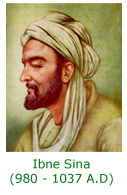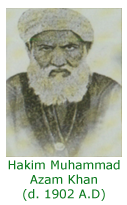Tayyebi: Endowed with the rich heritage of Tibb-e-Unani
The word Unani is a derivative of the Arabic word 'Unan' (Greece) and is meant as 'being from Unan' or from Greece. It derives from the Greek name 'Ionia' which was the name of that region during the heydays of its civilization. Tibb is an Arabic word meaning 'science of medicine'. Tibb-e-Unani is used to refer to that system or knowledge-base of medicine which originated from Greece.
The origin of the science of medicine or the practice of treatment of illnesses can be traced back to the early civilization of Mesopotamia (Iraq/Arabia). It was, in fact, this territory that served as the cradle of human civilization and it was only from this part of the world that diversified and multifarious experiments in all fields of knowledge traveled across the Greek, Roman and Indian borders. However, it was the Greek civilization which produced the first scientists and philosophers and formalized the process of learning and experimentation.
 The start of medicine as a formal science can be attributed to Hippocrates (d. 370 BC) who is regarded as the father of medicine. His work was furthered by a number of philosophers namely Plato (d. 347 BC) Aristotle (d. 322 BC) Galen (d. 200 AD), and subsequently taken up by muslim scientists in which most notable was the Persian scientist Ibne Sina or Avicenna (d. 1037 AD). His treatise on medicine called 'Al-Qanoon' or 'The Canon of Medicine' is regarded as a philosophical and scientific encyclopedia, and was taught in all major Islamic and European Universities up until the 19th century.
The start of medicine as a formal science can be attributed to Hippocrates (d. 370 BC) who is regarded as the father of medicine. His work was furthered by a number of philosophers namely Plato (d. 347 BC) Aristotle (d. 322 BC) Galen (d. 200 AD), and subsequently taken up by muslim scientists in which most notable was the Persian scientist Ibne Sina or Avicenna (d. 1037 AD). His treatise on medicine called 'Al-Qanoon' or 'The Canon of Medicine' is regarded as a philosophical and scientific encyclopedia, and was taught in all major Islamic and European Universities up until the 19th century.
When the Sub-Continent was conquered by the Arab muslims, they brought along with them their knowledge of medicine which was soon adopted and augmented by scientific scholars of this region. Some of the prominent individuals who produced extensive bodies of knowledge and developed the pharmacopeias which are still in use today are Hakim Alavi Khan (d. 1747 AD), Hakim Akbar Arzani (d. early 18th century AD), Hakim Sharif Khan (d. 1816 AD) and Hakim Muhammad Azam Khan (d. 1902 AD). The latter of these distinguished scientists is most notable for his significant contributions to the field of herbal medicine.
and Hakim Muhammad Azam Khan (d. 1902 AD). The latter of these distinguished scientists is most notable for his significant contributions to the field of herbal medicine.
A resident of Rampur, Hakim Azam Khan was especially called upon by the Maharaja of Indore, Takoji Holkar, and appointed Head Physician to the royal family, a position he maintained till his death. Hakim Azam Khan established a Matab (Clinic) in Indore which became a center for learning where he engaged himself in teaching and writing books till his last days. He has to his credit great works of encyclopedic scope (Muheet-e-Azam, Ikseer-e-Azam, Rumooz-e-Azam, Qarabadeen-e-Azam) which form the basis of most of today's Tibb-e-Unani preparations.